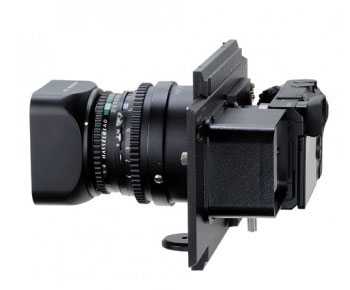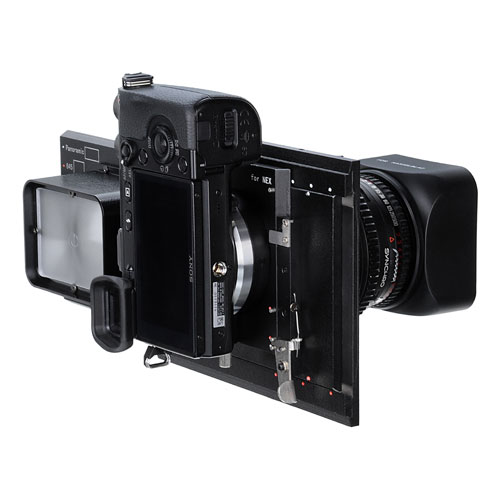RhinoCam promises to turn your Sony NEX into a medium format digital camera for $500
posted Wednesday, March 6, 2013 at 4:56 PM EST

There’s no way around it, shooting digital medium format is prohibitively expensive for the vast majority of photographers. With a modern medium format back costing in the tens of thousands of dollars, it’s well beyond the means of most. But Fotodiox has created an interesting device that will allow you to get something like medium format performance out of your Sony NEX camera, at a fraction of the price of doing it the normal way.
The newly announced RhinoCam, which is part of Fotodiox's new Vizelex line (yes, those are some awkward-sounding product names), is a bizarre looking $499.95 contraption that straps your NEX in on one side, and then functions as a mount adapter for Pentax 645, Mamiya 645, or Hasselblad V lenses. But RhinoCam does a lot more than just work as an adapter, it also moves the camera and sensor around in a precise pattern for multiple exposures, so the resulting images can be stitched together and look like you had a larger sensor.
Fotodiox describes the method as such:
“The lens remains firmly in place while the RhinoCam’s moving platform positions the NEX sensor for multiple precisely-positioned exposures. RhinoCam also mounts directly onto a 4x5 board to open up additional possibilities with wider angle lenses, tilt shifts, bellows systems and more.”

It sounds almost like an automated version of the “Brenizer Method,” which allows you to achieve a similar depth of field to medium format using a standard digital camera. The difference is that the RhinoCam moves the sensor along a plane while the Brenizer Method requires you to move the entire camera.
It should also be noted that you’ll have to stitch the images together after the fact with this device, and you won’t be getting the incredible dynamic range of a true medium format sensor. And, as with any combined image, it will be very easy to get stitching artifacts where objects have moved between exposures. Still, with a relatively low price tag of $500, the RhinoCam might be enough to tempt a few photographers to give it a try.

